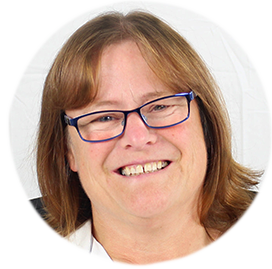TaxCalc Blog
News and events from TaxCalc

An expert’s view on the New Small Companies Regime: Q&A with Steve Collings
With the new Small Companies Regime now in full swing (and, following the first mandatory filing deadline for FRS 102 section 1A and FRS 105 accounts with a December 2016 year end), we thought we’d take some time to reflect on its adoption. And so we’ve reached out to industry expert Steve Collings for a short Q&A to give his opinions on some of the challenges adopters are still facing.
Introducing Steve Collings…
For those of you who don’t know, Steve Collings, FMAAT FCCA is the Audit and Technical partner at Leavitt Walmsley Associates Ltd. Steve contributes to a variety of sources within the profession and is recognised globally for his technical knowledge.
Through lecturing on the CPD circuit, advising various professional bodies on accounting matters, and having written and published 18 books within the industry, Steve’s expertise is invaluable to keeping practitioner’s knowledge at the highest standard possible.
- How would you summarise the general perception on the application and requirements of the new Small Companies Regime and transition to FRS 102 and FRS 105?
As you know, in addition to my practitioner role, I lecture on the CPD circuit so meet a lot of accountants over the course of a year. Feedback from practitioners has been generally positive about the transition and the new regime in general (although it’s not without controversy in some areas – especially financial instruments!). There is still some work to do in some respects, where I suspect additional training needs are required - such as in dealing with the new accounting treatments (especially for investment property and financial instruments). I always encourage practitioners to review the Staff Education Notes issued by the Financial Reporting Council in this respect. These are very good documents which will help practitioners understand some of the complexities in FRS 102.
There is still a lot of uncertainty about the new company law requirements. The EU Accounting Directive is now reflected in company law which restricts the number of legally required disclosures. However, it is important to emphasise that a true and fair view must be given in the financial statements of small companies (there is no true and fair presumption for small companies as there is for micro-entities). This will, of course, result in practitioners having to apply more professional judgement
- What are the most common mistakes that you’re seeing on accounts prepared under FRS 102 section 1A and FRS 105?
These range from errors due to a lack of understanding of the new accounting rules, such as taking fair value gains and losses on investment property to a revaluation reserve (which will require a prior period adjustment putting through the accounts once the practitioner realises what they have done) to more serious errors such as using disclosures from old UK GAAP. The latter is quite rare but I have seen this in a set of accounts and assume the practitioner is using out-of-date software or not using the software correctly!
The posting of deferred tax for revalued assets is another common mistake. If revaluing a non-monetary asset, accounted for
For FRS 105 reporters, there are very few ‘common’ errors and I suspect this is due to the significantly reduced disclosure regime and simplicity of the standard. I have, however, seen a set of accounts for a micro-entity with a revaluation reserve on the balance sheet. Application of the Alternative Accounting Rules (giving rise to a revaluation reserve) or the Fair Value Accounting Rules is prohibited for micro-entities. Everything is accounted for under the historical cost accounting rules for micro-entities.
- FRS 102 section 1A paragraph 1A.5 requires the financial statements of a small entity to give a true and fair view. With the reduction in disclosure under the new Small Companies Regime, what, if any, additional disclosures do you think could or should be considered when assessing if the accounts give a true and fair view?
This is a difficult one
- Opinions differ on whether the additional primary statements such as Statement of Changes in Equity and Statement of Comprehensive Income should be filed at Companies House. What’s your opinion on these being included?
I do not agree that these statements are needed; although some of my financial reporting peers take a different view and I respect those views. However, in my

We’d like to thank Steve for his input
For a while now, TaxCalc Accounts Production has included the facility to produce accounts in accordance with the new Small Companies Regime and FRS 102 1A (plus FRS 105 for Limited Companies). However, as this blog suggests, preparers are still getting used to the challenges that the change in legislation brings. The insight that Steve has provided also highlights that opinions can differ in some areas and as such, we welcome any feedback that will help us to provide the best solution for you. So please do get in touch!
Learn more about our award-winning TaxCalc Accounts Production
Learn more about our revolutionary Cloud-based service, TaxCalc CloudConnect
charlesaccountancy (8 years ago)
Tim Charles
Charles Accountancy





